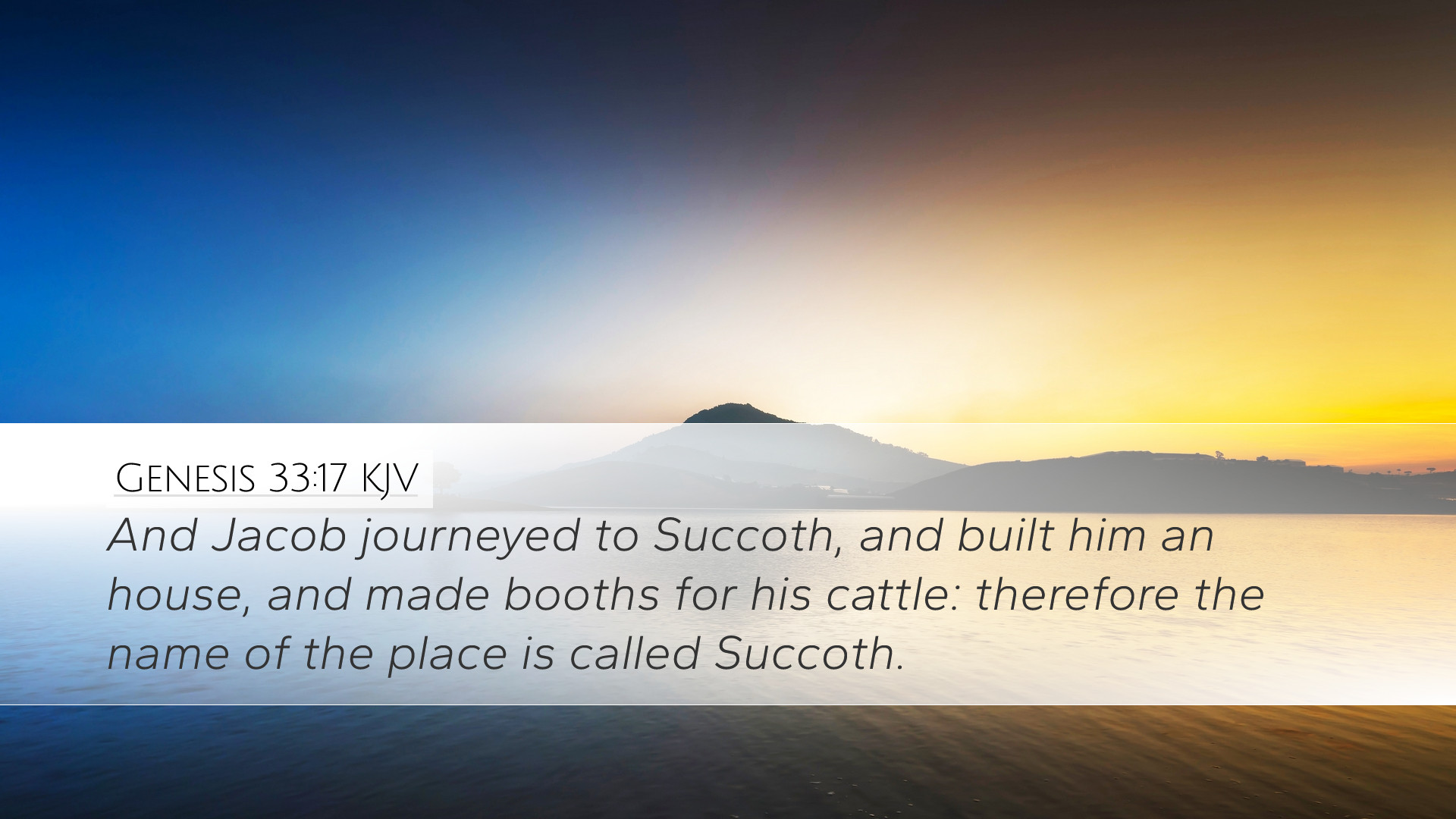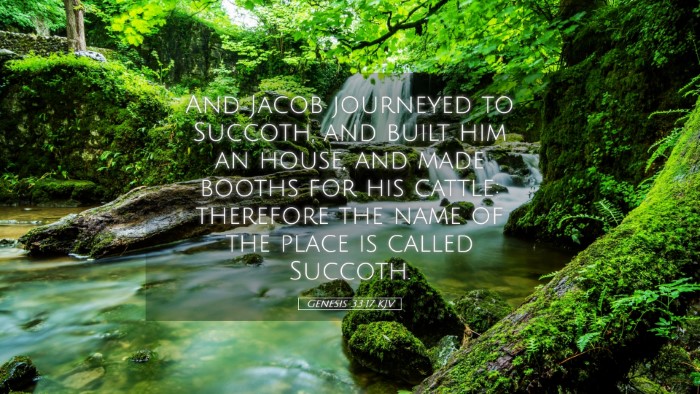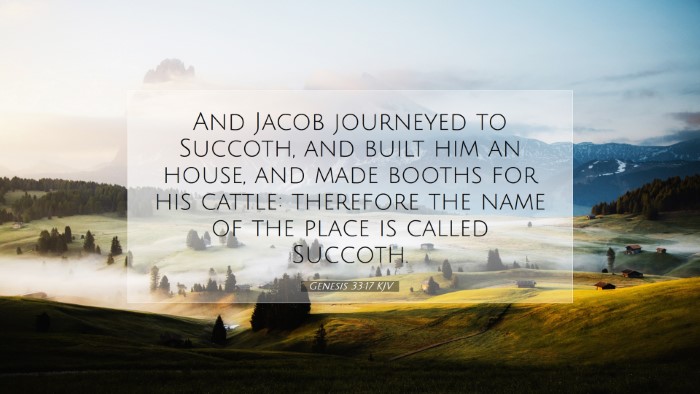Commentary on Genesis 33:17
Verse: "And Jacob journeyed to Succoth, and built him a house, and made booths for his cattle: therefore the name of the place is called Succoth."
Introduction
This verse narrates a significant moment in Jacob's life following his reconciliatory encounter with Esau. The name Succoth means "booths," which reflects Jacob's immediate response to his new environment and circumstances. This commentary seeks to draw insights from classical commentaries by notable theologians, providing a rich understanding of this passage.
Contextual Background
This verse falls within the broader narrative of Jacob's return to Canaan after many years. Jacob had previously fled from his brother Esau due to fear of reprisal for taking Esau's birthright and blessing. Now, having made peace with his brother (following a powerful wrestling encounter with God), Jacob's settlement in Succoth signifies a new chapter in his journey.
Historical Location of Succoth
- Geographical Significance: Succoth is located east of the Jordan River, possibly near the Jabbok River, which suggests a strategic choice for Jacob's encampment.
- Portitive Nature: The site choices reflect Jacob's initial pragmatic approach without immediate aspirations for building a permanent residence in Canaan, focusing instead on temporary accommodations.
Theological Insights
Jacob's Transition and Progress
Matthew Henry notes that Jacob's movement from Peniel to Succoth symbolizes his gradual transformation from a fugitive to a patriarch. The act of building a house can be seen as an acknowledgment of God's faithfulness as Jacob returns to the Promised Land.
Divine Providence
Albert Barnes reflects on God's providential guidance throughout Jacob's journey. The choice of building booths rather than a permanent home illustrates Jacob's understanding of his situation as transient, further emphasizing reliance on God for future stability.
Symbolism of Boothes
Adam Clarke associates the booths with a humble dwelling, contrasting with the lavish lifestyles of neighboring peoples. This can serve as a reminder of God's preference for humility and simplicity in the lives of His people, as Jacob prioritized his family's needs over personal extravagance.
Practical Applications for Life and Ministry
Building in Times of Transition
Jacob’s building of a house and booths highlights the importance of establishing a firm but flexible foundation during periods of transition. Pastors and ministers can draw parallels to their ministries, which often require both adaptive resilience and stability during fluctuating circumstances.
Embracing Simplicity
The act of making booths signifies that believers should embrace simplicity in a world that often places value on material wealth. Emphasizing a living faith that relies on God’s provision can help congregants mature spiritually.
The Call to Community
As Jacob made provisions for himself and his cattle, there lies a call to community. The church, much like Jacob, should create spaces for growth, protection, and care that address the needs of its members. This reinforces the need for inclusive fellowship in ecclesiastical settings.
Conclusion
Genesis 33:17 serves as a compact yet profound narrative, linking the themes of reconciliation, providence, and establishment amidst change. The insights gathered from respected commentaries enhance understanding of Jacob's faith and perseverance. For theologians, pastors, and scholars, this passage encourages reflection on how faith manifests in practical decisions and interactions with others.
Further Reflection Questions
- In what ways do you see God’s providence in your life and ministry?
- How can the church create an environment that promotes simplicity and humility?
- What lessons can be drawn from Jacob’s transitional journey to guide believers facing uncertainty?


